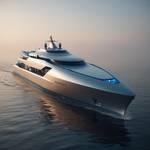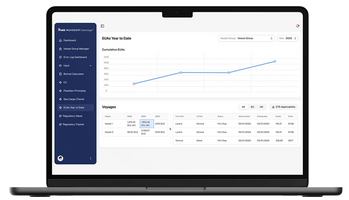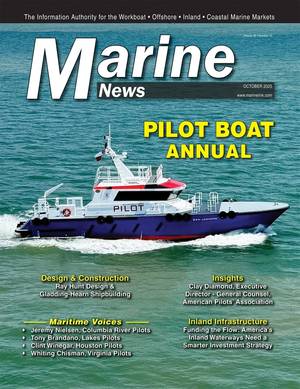The Growing Threat of Piracy on the Gulf of Guinea
The Gulf of Guinea, which stretches from Senegal to Angola, has become a major hotspot of piracy in recent years. This has had a significant impact on maritime trade and regional security.
This body of water, which stretches from Senegal all the way to Angola is rich in oil and also serves as a vital shipping route for international trade. The surge in pirate activities poses serious risks to the economic and social development of West and Central African countries. Understanding the scope and nuances of Gulf of Guinea Piracy is crucial as the international community gathers to combat this escalating menace.
History of Piracy and its Rise
Piracy is not new in the Gulf of Guinea. In the past, maritime robberies have been sporadic in this region. The current wave of piracy, however, can be traced to the beginning of the 21st century. It coincided with regional economic problems, political instability and a lackadaisical enforcement of maritime law.
In the beginning, pirates in this area were mainly focused on small-scale thefts and hijackings. Over the last decade, however, the sophistication and scale of pirate operations has increased dramatically. Pirates of today in the Gulf of Guinea use advanced tactics. These include armed attacks against vessels, hostage situations that last for a long time, and theft of valuable cargoes, such as crude oil and petroleum.
The Factors that Fuel Piracy
Piracy is a result of several factors:
Economic Inequality and Unemployment : Poverty and lack of opportunities for economic growth drive people to piracy, which is a lucrative but illegal source of income.
Weak Maritime governance Many West and Central African countries lack the infrastructure and resources to enforce maritime laws effectively. Corruption and insufficient funding undermine anti-piracy initiatives.
Political instability In countries such as Nigeria, insurgency from groups like Boko Haram have strained national security, creating a void that pirates take advantage of.
Geographical Terrain : The complex riverine systems and deltas provide pirates with hiding places and logistical support that is essential to launch maritime attacks.
Impacts of regional and global trade
Piracy in the Gulf of Guinea has far-reaching consequences:
Economic losses According to the International Maritime Bureau, piracy costs the global economy billions of dollar annually through ransoms, cargo loss, and higher shipping insurance premiums.
Pirates are a threat to the lives of mariners. Pirates from this area are violent and heavily armed. Crew members are at risk of kidnappings, physical injury, and psychological trauma.
Oil Supply Disruption The Gulf of Guinea provides oil to many countries. Supply chain disruptions caused by piracy can lead to volatility in oil prices and destabilize the global market.
International Cooperation and Counter-Piracy Measures
The international community has launched several strategies against piracy, recognizing the severity of the threat.
Joint Naval Patrols Multinational patrols such as those conducted by Nigeria, Ghana and Cameroon aim to improve maritime surveillance and response capabilities.
Capacity-Building: Programs such as the Gulf of Guinea Interregional Network, and organizations like the United Nations Office on Drugs and Crime support local maritime law enforcement and judiciary systems.
Information sharing: Setting up communication channels to share real-time information between coastal states in the region and international partners will be crucial for a preemptive intervention against piracy.
Enhancements to the Legal Framework: It is important for deterrence on a long-term basis that states in the region have strong legal frameworks.
Although there have been significant progresses in reducing piracy, it is important to continue and enhance these efforts. This requires a multifaceted strategy that includes military, diplomatic, and economic measures as well as strong international collaboration. By tackling the causes of piracy, and strengthening regional maritime governance, Gulf of Guinea can navigate to a future of safer, more secure waters that will benefit both regional and international stakeholders.


















